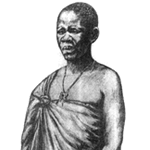Lest we forget role played by women in armed struggle

Vaidah Mashangwa
AS we commemorate the country’s 35th independence anniversary under the theme Zimbabwe @ 35: Consolidating Unity, Peace and Economic Sovereignty, let us not forget the role played by women during the liberation war. Women also participated in the armed struggle, an initial preserve for men. Those who did not join the struggle and remained behind also played a significant role in the war of liberation through other activities such as cooking and providing the much needed information to the freedom fighters.
Naomi Nhiwatiwa reported in July of 1979 that one third of the guerrillas in Zimbabwe were women and one scholar pointed out that about 7,500 women fought during the conflict thereby challenging the traditional perception of women being vulnerable and fragile which consequently improved the worth of women in society.
Several authors have highlighted that the participation of women in the armed struggle marked the beginning of equality where men and women are viewed as equals in all spheres of life.
Women’s participation in the armed struggle enabled them to gain confidence.
Apart from that, the role played by Mbuya Nehanda Charwe Nyakasikana (1840-1898), Sekuru Kaguvi and other spirit mediums cannot be understated.
The spirit mediums became a source of inspiration in the nationalist struggle in the 1960s and 1970s. It was Mbuya Nehanda and Sekuru Kaguvi who instructed all the regional chiefs to arm themselves and resist European domination.
Mbuya Nehanda and Sekuru Kaguvi were however, captured, tried and sentenced to death by hanging. Before she was hanged, Mbuya Nehanda promised the Europeans that her bones would rise to lead the second struggle against them and indeed the blacks liberated themselves after a protracted war against the British.
The young women and men who remained behind also gained a lot of respect and popularity in their communities as they organised regular night-time village meetings (pungwes) as Chimbwidos and Mujibhas (collaborators).
At the meetings, the guerrillas explained why they were fighting and taught nationalist slogans and songs, thus building a culture of resistance among the blacks.
While women’s role in the armed struggle is hailed, it is their lack of participation in decision making positions during post-independent Zimbabwe that is worrisome to many feminists and women in general.
According to Josephine Nhongo Simbanegavi, the war perpetuated the peripheralisation and domestication of women.
Simbanegavi notes that by 1979, there was only one woman in the High Command and the Central Committee had 33 posts and very few women occupied these posts.
She points out that even towards the end of the struggle, the media focused on “the boys from the bush”, thereby placing focus on the participation of men in the struggle.
Guerrilla leaders who came to implement the ceasefire were mostly men. The Lancaster House Agreement was also spearheaded by men.
During the 1980 elections for example, Zanu-PF secured 57 seats in Parliament and women won five of these. Three of these women were given Cabinet posts.
Among them were Victoria Chitepo who became Deputy Minister of Education, Sport, Arts and Culture and Naomi Nhiwatiwa who became Deputy Minister of Post and Telecommunications.
This was because women were excluded from top administrative structures during the war.
The government, however, ought to be applauded for spearheading gender equity and equality issues through the new Constitution.
Section 17 of the Constitution is dedicated to gender equality.
While progress has been made in terms of women’s positions in both the House of Assembly and Senate, Zimbabwe has not reached the 50/50 parity as pronounced in the Sadc Protocol on Gender and Development.
In addition, laws that enhance the status of women have been enacted since 1980 and these include the Legal Age of Majority Act of 1982 and the Labour Relations Act of 1985, which erased sex based discrimination at work.
The Matrimonial Causes Act of 1987 which looked at the distribution of property after divorce was also passed; the Maintenance Amendment Act of 1989, the National Gender Policy of 2000 and the recent Domestic Violence Act which protects both male and female victims of domestic violence have since been passed.
However, since the passing of the Act, women and young girls continue to suffer as victims of rape and sexual abuse.
Women continue to clamour for equality in socio-political and economic spheres.
There has been an increase in the number of women who have penetrated the once male dominated arenas such as engineering, medicine and law.
The fact that Zimbabwe is signatory to international and regional instruments that promote gender equity and equality such as the Beijing Declaration and its Platform of Action, Convention on the Elimination of all forms of Discrimination Against Women (CEDAW) and the Convention on the Rights of the Child bears testimony of how serious Zimbabwe is in pursuing the gender agenda.
The various empowerment programmes for women also show the commitment of government in fully emancipating women from further oppression.
Vaidah Mashangwa is the Provincial Development Officer in the Ministry of Women Affairs, Gender and Community Development. She can be contacted on 0772 111 592 or email [email protected].










Comments